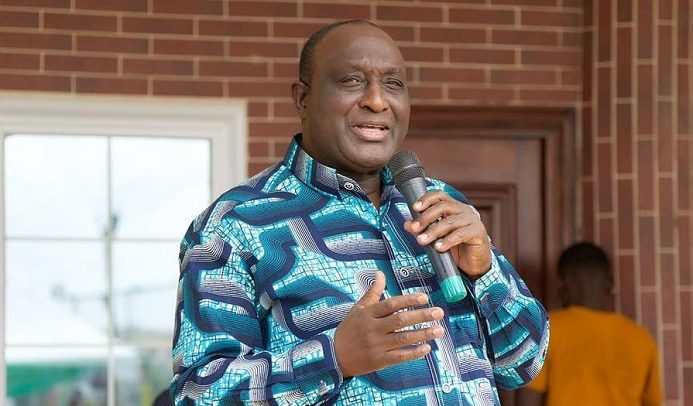
I stood at the cashier till in the Junction Mall, Shoprite supermarket, watching on as Mercy, the salesgirl was scanning my purchases and recording the prices, after which I would be presented with my bill.
When she got to the last item, the machine was not picking the cost and looking on the screen it looked like I was going to pay less than GH¢280.00. After the last item was locked in, my bill leapt to GH¢308.64. As we are in an era of protests, I protested.
To cut a short story shorter, I demanded there should be a re-run and Mercy who looked very calm and composed, with an okay from her supervisor, started the process all over again and arrived at GH¢308.64. A gentleman as I am, I humbly apologised to Mercy whowas so merciful, accepting my apology, whole heartedly.
When I got home, I wanted to find out where I erred and embarrassed that beautiful, calm and humble salesgirl, called Mercy. And what I found out shocked me. The actual cost of the items I bought totalled GH¢253.19 and then the taxes followed. There wasGetFund (2.5% or GH¢6.33); NHIL (2.5% or GH¢6.33) and Covid (1.0% or 2.53). These totalled GH¢15.19 and when added to the GH¢253.19 the total came up to GH¢268.38.
Now walks inVAT with 15% or GH¢40.26. So, in total my bill arrived at the cool GH¢308.64. And I was in the shop thinking that beautiful Mercy was scamming me. Once again, Mercy of Shoprite Junction Mall, I am so, so sorry, find it in your sweet heart to forgive me.
But why was the VAT not worked on the value of the items, but rather on the cost of the items and other taxes? It would have cost me, GH¢37.98 and not GH¢40.26.
Taxes since the biblical times of Jesus were never favoured and tax collectors were branded evil ones. During those times,tax collectors would add on, any amount to the tax and when paid, they would deduct it as their remuneration. This made them extremely rich.
In this day and age, Ghanaians are complaining about taxes and there is justification for this. For if your shopping cost you GH¢253.19 and total taxes added on,is GH¢55.45, there is cause for protest.
On the other hand, taxes form the largest source of revenue for government and must not be ignored. Without taxes there will be very little internally-generated funds and government will rely solely on foreign and internal loans
With high taxes, there is the law of diminishing returns government. Government may target say GH¢100 billion from taxes for development and so increases the tax rates or introduces new taxes or both. With the people already poor, government will not achieve its target. And this is the situation in a country like Ghana. For example, if numerous customers decide not to go to Shoprite anymore, but patronise the corner shops, government will lose out, here.
And one thing is that taxation in Ghana is saddled on a few groups of people, made up mainly of companies that are registered under the Ghana Revenue Authority (GRA), imported goods and public and state workers. The burden on them is so huge as they must provide the bulk of revenue for government and the state.
On importation of goods for example, there are twenty-two different taxes apart from VAT, which add up to 65% of the value of the imported item. This is outrageous. And Alan Kwadwo Kyerematen who is well vested in governance, has promised that he will eliminate some of the taxes, merge some and in the end make importation less burden with taxes, when elected into office.
He emphasised that government must create an enabling environment for the private sector-led growth is our desire for transformation will not elude us.
In another groundbreaking and innovative approach, Alan intimated that a government under his leadership will shift from the current heavy reliance on indirect taxes to direct taxes.
“I will ensure a recalibration of the existing tax regime structure to optimize revenue mobilization from direct taxes (personal and corporate), and reduce over-reliance on indirect taxes (import duties, levies, and charges) to make the corporate sector more competitive and profitable.” He stated.
The ordinary Ghanaian may not understand what Alan is saying, but the traders do and if Alan, as president, is able to do what he is saying here, the ordinary Ghanaian will feel the positive impact in life.
One other way, to eliminate the burden of taxation, is to spread the tax net. Everyone in any form of business, except farming, must be made to pay tax. Those down the ladder, like hawkers, food vendors and other very small-scale businesses must be given a fix rate of between GH¢1.00 to GH¢10.00 a month, or a bulk payment of between GH¢10.00 to GH¢100.00 a year.
Digitalisation must be enhanced to make payment of taxes, electronically. In that way money will flow directly into state coffers, instead transiting in the tax collectors’ pocket, where some of the money will take up permanent residence.
With the tax net spread to cover all forms of businesses, except farming, and Alan’s reduction of taxes, every Ghanaian will gladly pay his or taxes and the country will get more than enough revenue.
By Hon. Daniel Dugan
The views expressed in this article are the author’s own and do not necessarily reflect The Chronicle’s stance.
The post Alan Kwadwo Kyerematen On Taxes appeared first on The Ghanaian Chronicle.
Read Full Story


















Facebook
Twitter
Pinterest
Instagram
Google+
YouTube
LinkedIn
RSS